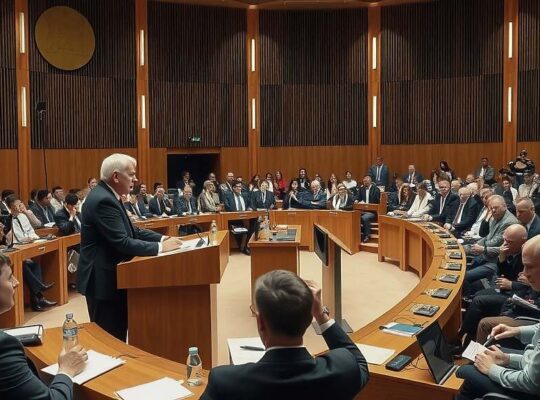The German Federal Ministry of Justice has unveiled a sweeping reform of criminal law aimed at combatting human trafficking and sexual exploitation, a move signaling a potential shift in Germany’s approach to a deeply entrenched and evolving crime. The proposed legislation, announced Monday, seeks to bolster prosecution efforts and ensure greater accountability for perpetrators operating within the country.
The draft law proposes a fundamental overhaul of existing statutes, broadening the scope to encompass novel forms of exploitation beyond traditional definitions. Notably, practices such as surrogacy, adoption and forced marriage are slated for inclusion under the revised legal framework. This expansion reflects a recognition that the methods used by human traffickers are constantly adapting to exploit vulnerabilities within the system.
Justice Minister Stefanie Hubig of the Social Democratic Party (SPD) framed the issue as “modern slavery” emphasizing that Germany is not immune to this global crisis. “Human trafficking is rampant within the construction sector, the care industry and in the devastating realm of forced prostitution” she stated. The latter, she added, represents a particularly egregious form of exploitation, disproportionately affecting women and girls who are lured with false promises and subsequently subjected to systematic control and coercion.
A critical element of the proposed reform is the introduction of demand-side penalties – extending legal repercussions to those who actively solicit exploitative services across all forms of trafficking, not solely sexual exploitation. This measure targets the downstream drivers of the crime and aims to disrupt the economic incentives that fuel it. Furthermore, the draft law proposes escalating sentences to ensure that perpetrators face more severe consequences, a direct response to concerns that current penalties are insufficient to deter criminal activity.
Critics, while acknowledging the importance of the proposed changes, have raised questions regarding the potential effectiveness of demand-side penalties if not adequately enforced and accompanied by robust preventative measures. The legislation has been distributed to state governments and professional associations for review and feedback, with responses required by November 28, 2025. This period allows for critical assessment and potential adjustments before the bill proceeds through the parliamentary process, potentially ushering in a new era in Germany’s efforts to eradicate human trafficking.












